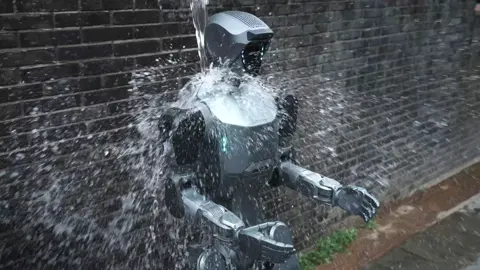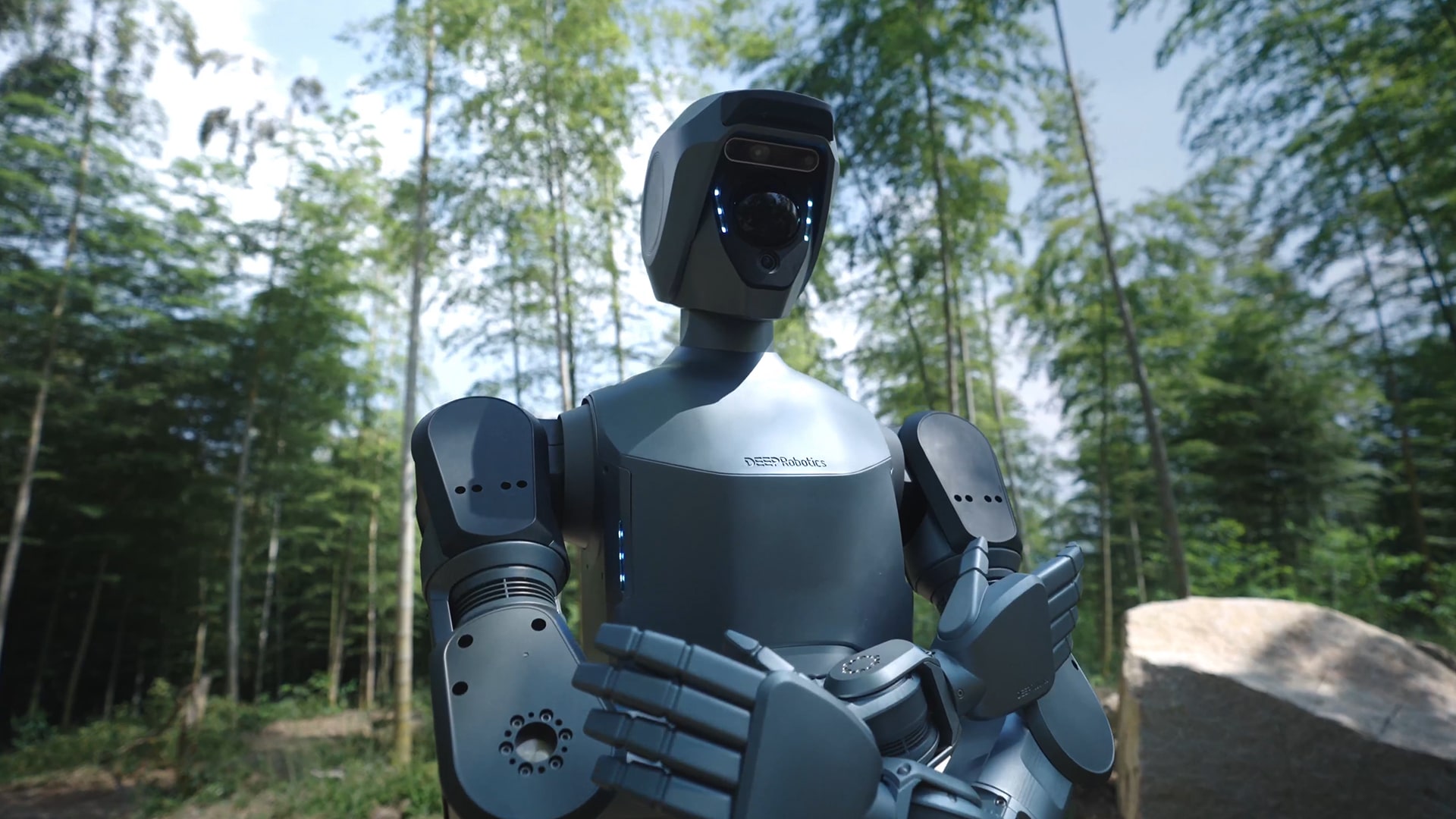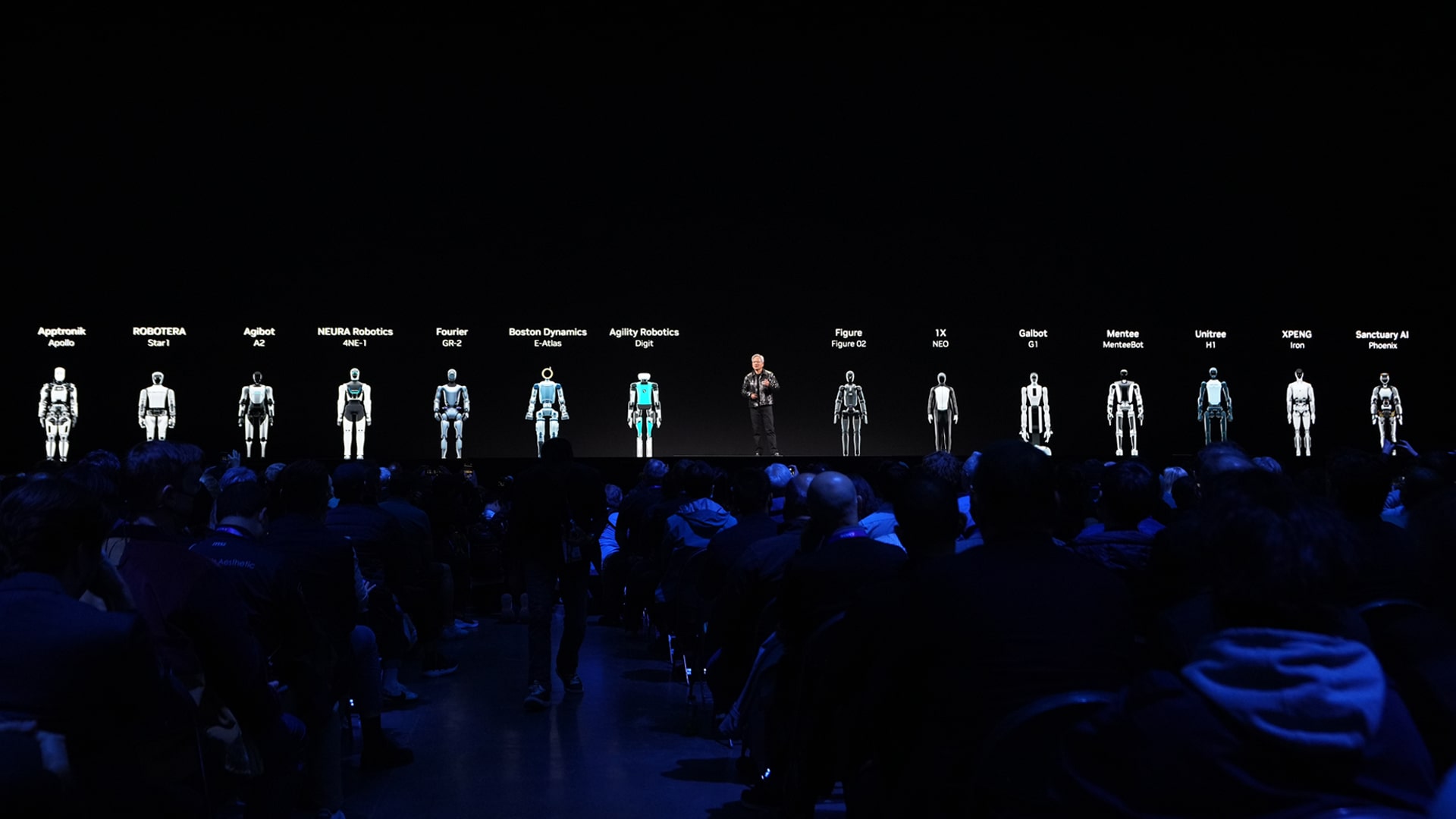After mastering how to walk on two legs, pour drinks, and even dance, humanoid robots are stepping closer to humanlike versatility. The latest stride comes with the launch of DR02, an industrial-grade robot developed by Hangzhou-based Deep Robotics, built to operate reliably in all weather conditions.
Announced on October 9, DR02 is said to be the first humanoid robot worldwide to achieve an IP66 protection rating, certifying resistance to dust and powerful water jets, which are key for outdoor operation.

Standing 175 centimeters tall and weighing about 65 kilograms, DR02 is engineered for resilience. Its IP66-rated exterior and wide thermal tolerance enable it to function between -20 and 55 degrees Celsius, enduring rain, humidity, and dust, conditions that often disable less protected humanoid machines.
The robot reportedly walks at 1.5 meters per second and can accelerate up to four meters per second. It can climb slopes of up to 20 degrees, and each arm can lift loads of up to ten kilograms. Designed with modularity in mind, its major components, including arms and legs, can be quickly swapped to minimize maintenance downtime.

According to Deep Robotics, DR02 runs on 275 TOPS (tera operations per second) of computing power and integrates a multi-sensor array comprising LiDAR (light detection and ranging), depth sensors, and wide-angle cameras. This combination enables it to perceive obstacles, map routes, and adjust its movement in real time.
Altogether, this balance of strength, dexterity, perception, and environmental resilience positions DR02 for real-world applications in fields such as security, inspection, and logistics.
DR02’s defining edge lies in environmental adaptability and industrial readiness. At present, few humanoid robots in China are designed with outdoor endurance as a priority. With its IP66 protection and industrial-grade payload capacity, DR02 distinguishes itself from domestic peers such as Unitree Robotics, Agibot, and UBTech. On the global front, it enters a field populated by well-known players including Tesla and Boston Dynamics, both of which have been advancing their own humanoid platforms.
The debut also reflects Deep Robotics’ ambitions to gain deeper footholds in a fast-growing industry. The global humanoid robot market was valued at about USD 2 billion in 2024, according to Markets and Markets, but could expand to RMB 6 trillion (USD 840 billion) by 2050, based on Morgan Stanley’s projections that link the growth to embodied intelligence reaching large-scale commercialization.
Within that context, DR02’s focus on durability and outdoor utility may carve a niche that few others currently occupy, reflecting progress in both robotics engineering and how machines are designed to interact with their environments.

